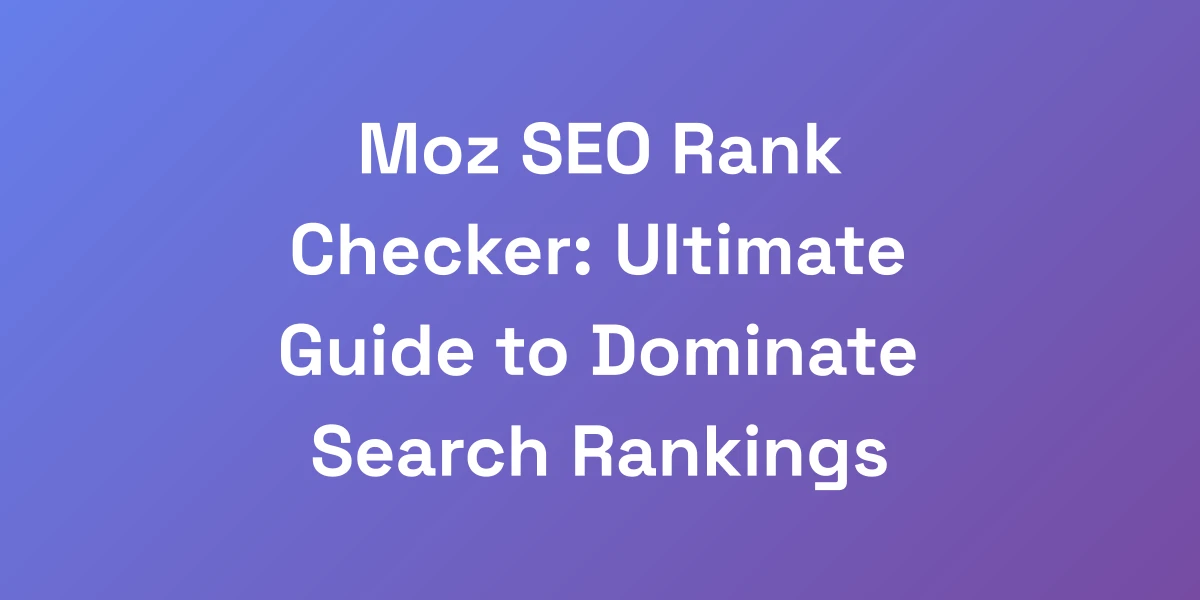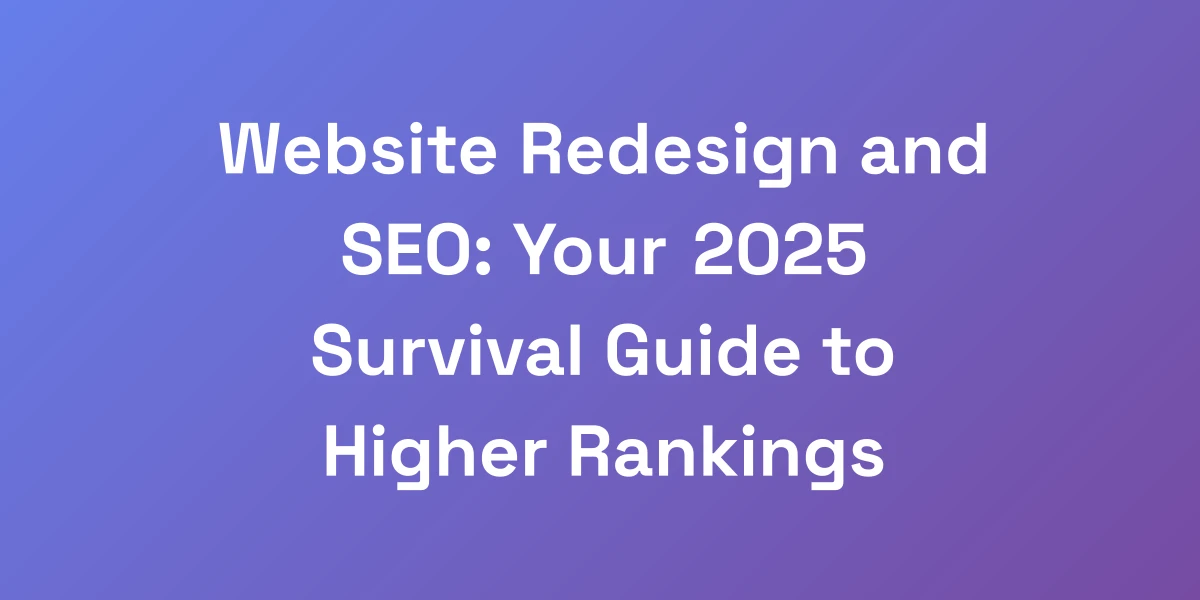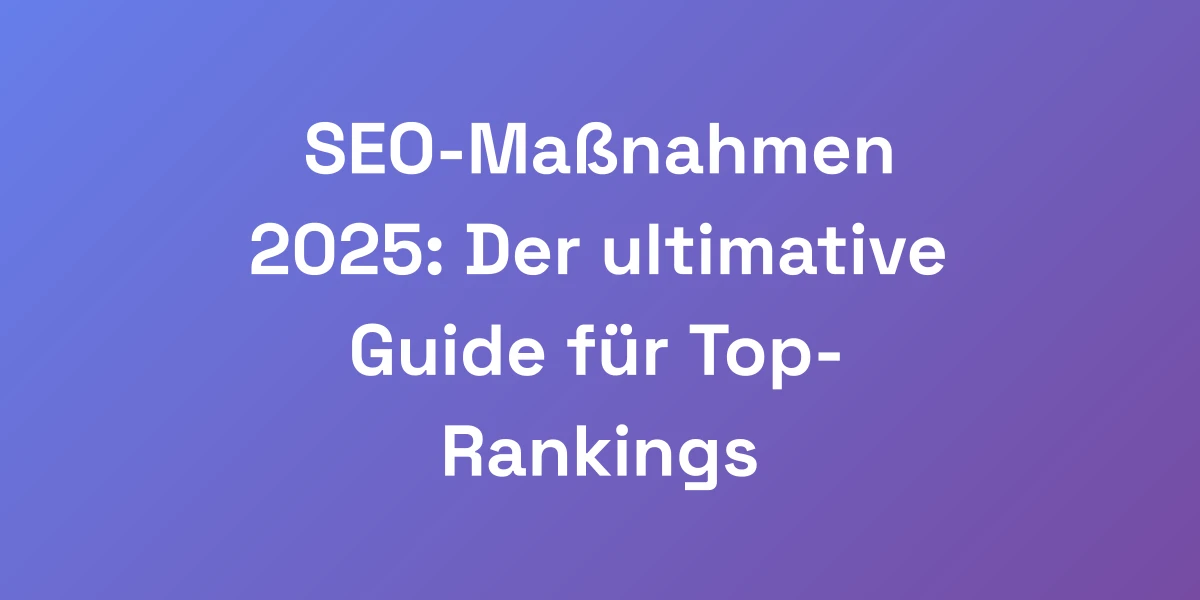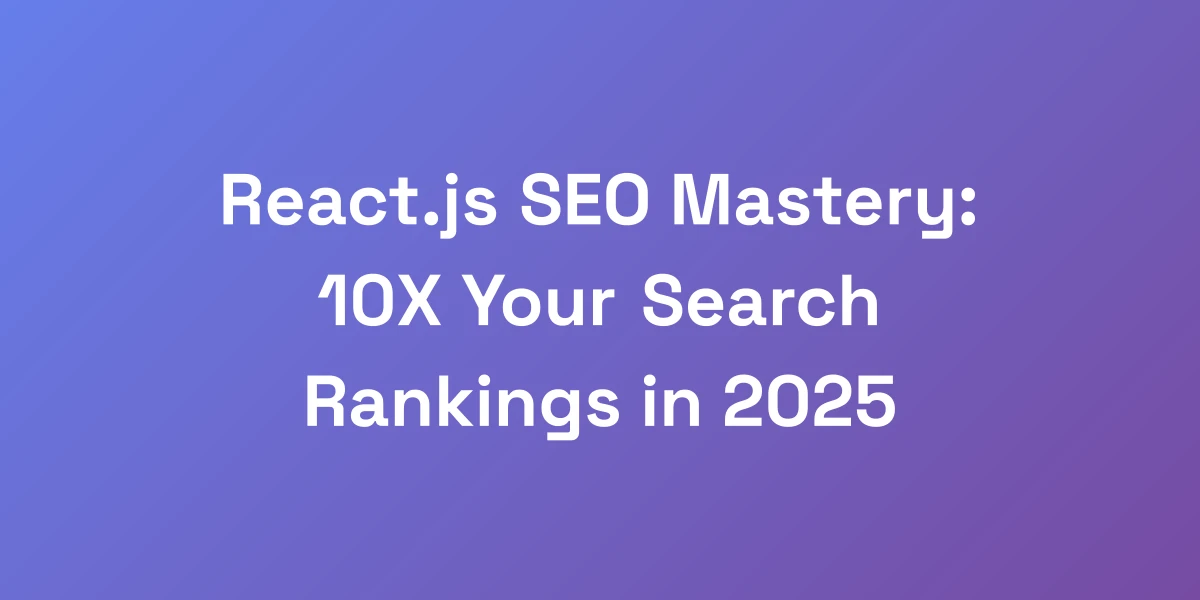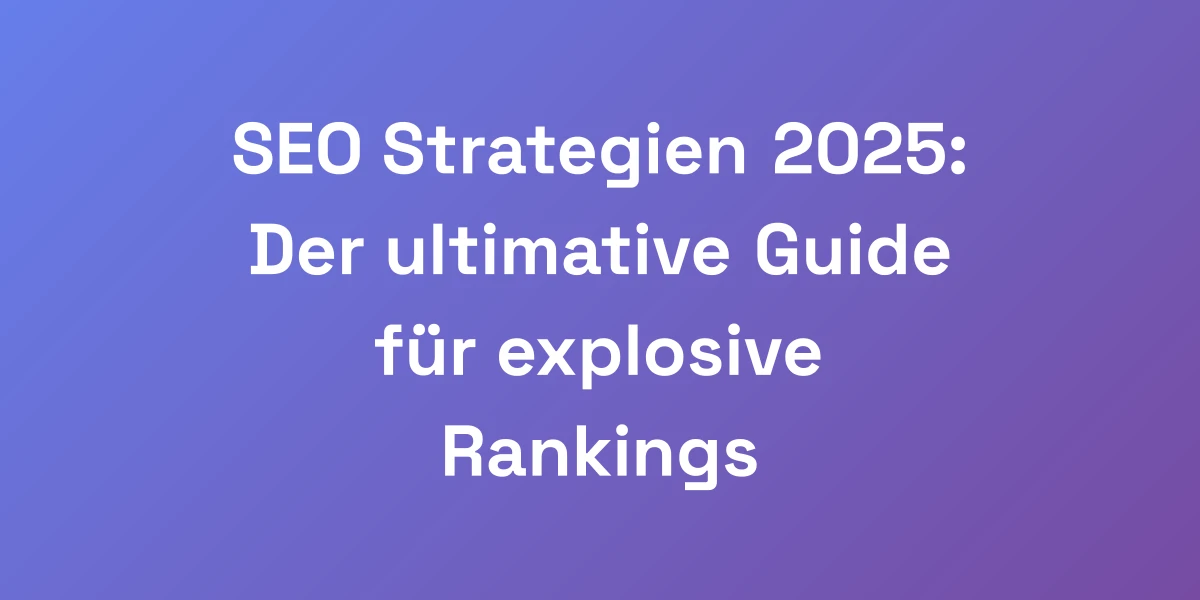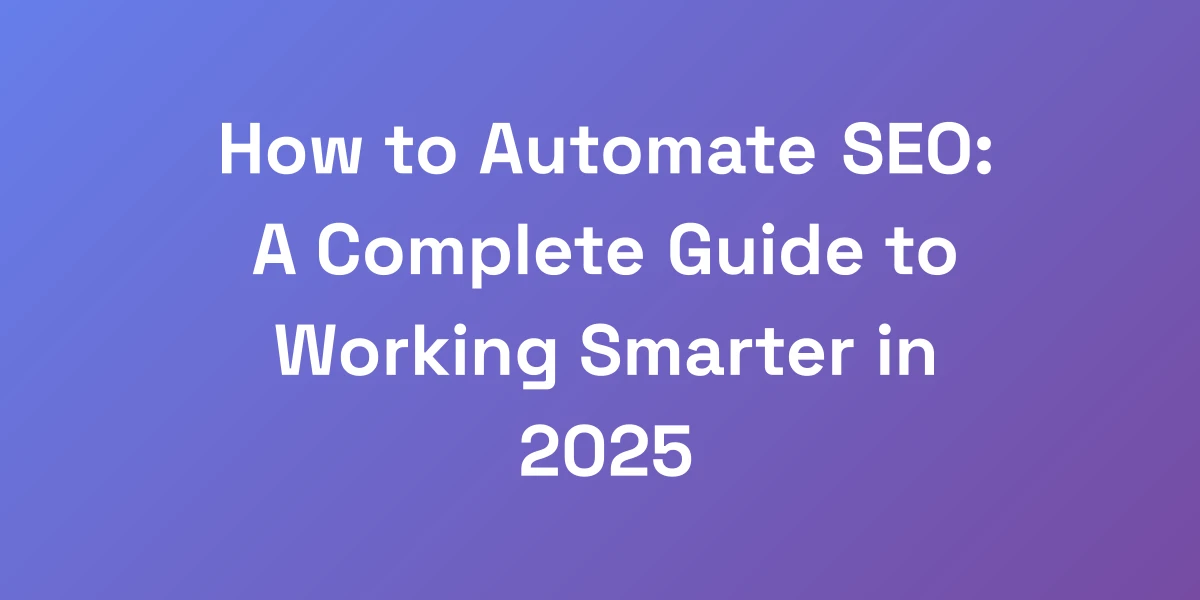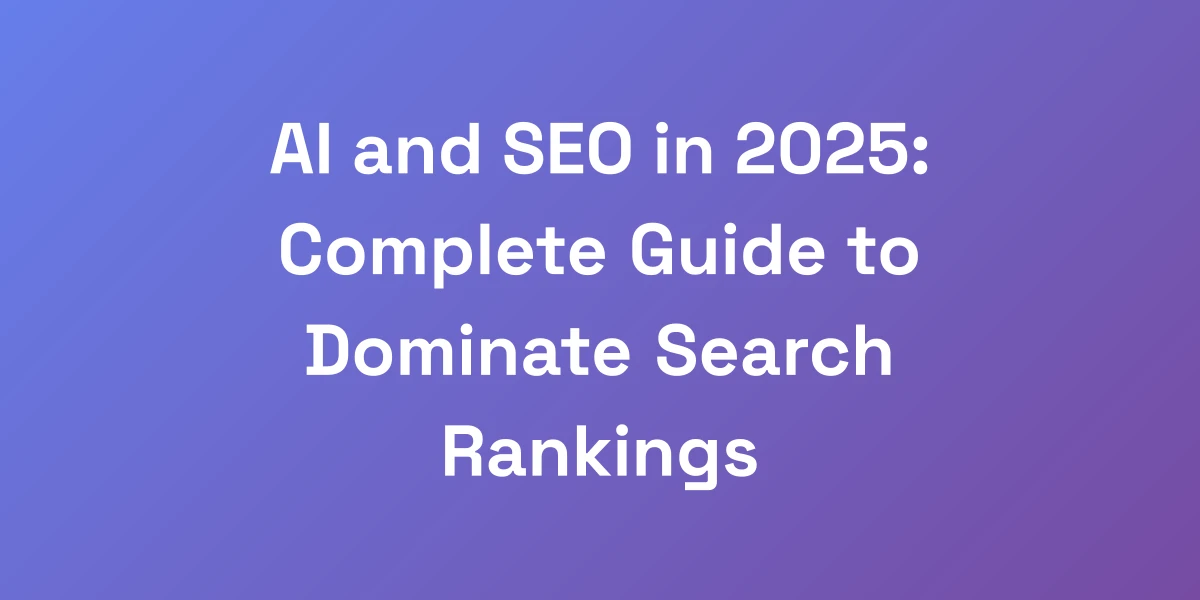
AI and SEO in 2025: Complete Guide to Dominate Search Rankings
Feb 11, 2025 | By zishansami102@gmail.com
Introduction
Welcome to a new era where AI and SEO are not just acquaintances but allies in the race to dominate search rankings. At AutoSEO, we love diving into the nuts and bolts of search engine optimization, and this time, the spotlight is on artificial intelligence. In 2025, AI is more than just a buzzword; it’s an essential part of any successful SEO strategy.
The integration of AI into SEO has reshaped how we approach search rankings, content creation, and user engagement. With tools that can predict search intent and algorithms that learn from every click, the landscape is evolving faster than ever. Yet, with these advancements come challenges—staying updated, choosing the right tools, and maintaining a human touch amidst automation.
In this comprehensive guide, we will walk you through the transformative role of AI in SEO. You’ll discover how AI impacts Google’s algorithms, the essential tools leading the charge, strategies for implementation, and ways to future-proof your SEO efforts. We’ll also delve into case studies that highlight successful AI-driven SEO campaigns. Buckle up, as we decode how to leverage AI for search success in 2025!
Understanding the AI Revolution in SEO
How AI Has Transformed Google’s Search Algorithms
Over the years, Google’s search algorithms have undergone significant changes, with AI playing a crucial role. In 2025 Google launched seven confirmed updates, including four core updates that revolutionized how search results are ranked. The March 2025 Core Update, for instance, was a game-changer, integrating the Helpful Content System into the core algorithm to boost search result quality. For more details on these updates, check out the latest updates from Search Engine Land.
This update wasn’t merely about tweaking some backend processes; it was about enhancing the search experience by identifying and promoting genuinely helpful content. As a result, low-quality, unoriginal content saw a 45% reduction in search visibility, pushing websites to focus more on user-centric, original content.
Key AI Technologies Powering Modern SEO
Understanding the backbone of modern SEO requires dissecting the core AI technologies that drive it. At the forefront are machine learning algorithms that learn from user interactions and adapt over time. Google’s AI capabilities, such as BERT and the latest advancements, help decode the complexities of human language, making search results more relevant.
- Natural Language Processing (NLP): Enhances the understanding of user queries to provide more accurate search results.
- Predictive Analytics: Anticipates user behavior to tailor search results and content suggestions.
- Automation Tools: Streamline repetitive tasks and allow for real-time data analysis.
These technologies enable a more dynamic and responsive search environment, where algorithms are not static but evolve with every user interaction.
The Impact of AI on Search Intent Understanding
AI has significantly improved the ability to understand and predict search intent, which is crucial for delivering relevant search results. Google’s updates have consistently focused on refining this aspect, ensuring that the content served aligns with what users are truly looking for.
For instance, the March 2025 update prioritized pages that offered genuine insights into user queries. This shift means that businesses need to focus more on creating content that answers specific questions rather than just targeting keywords. By doing so, they align themselves with the search intent, improving their chances of ranking higher.
Machine Learning vs Traditional SEO Approaches
Traditional SEO has always been about optimizing content based on known factors—keywords, backlinks, and on-page elements. However, AI and machine learning bring a new dimension to the table. They analyze vast amounts of data to identify patterns and opportunities that traditional methods might miss.
Machine learning algorithms can:
- Identify emerging keywords and trends faster than manual analysis.
- Adapt to changes in user behavior and search patterns.
- Provide insights into competitor strategies and market gaps.
These capabilities make AI a valuable tool for SEO practitioners looking to stay ahead of the curve and deliver results that traditional methods can’t achieve.
Real-World Examples of AI-Driven Search Results
AI-driven search results have reshaped how we perceive search engine rankings. In mid-May 2025, Google introduced AI Overviews, a simplified version of the Search Generative Experience (SGE). This innovation led to a more volatile ranking environment, with AI-generated snippets providing concise answers to user queries.
For example, a search for “best hiking gear” might show AI-driven snippets that compile the most relevant content from various sources, providing users with a comprehensive overview at a glance. This change underscores the importance of creating content that is not only informative but structured and optimized for AI parsing.
Essential AI Tools for SEO Success
Top AI Content Optimization Tools
In the realm of content optimization, AI tools have made a significant impact. These tools go beyond mere keyword stuffing, offering advanced insights into content performance and areas for improvement. Popular tools like AutoSEO, Surfer SEO and MarketMuse use AI to analyze top-ranking pages, providing data-driven recommendations for optimizing content. For insights on how AI can perform technical SEO analysis, visit Woosper.
These tools help by:
- Analyzing content structure for readability and engagement.
- Identifying semantic keywords to enhance content relevance.
- Providing real-time feedback on content quality and performance.
By integrating these tools into your workflow, you can ensure that your content is not only optimized for search engines but also valuable and engaging for users.
AI-Powered Keyword Research Platforms
Keyword research is no longer about guessing what users might be searching for. AI-powered platforms like Ahrefs and SEMrush have taken this art to the next level, providing in-depth analysis and insights into keyword trends and competition.
These platforms offer:
- Advanced Keyword Analysis: Discover high-potential keywords and long-tail variations.
- Competitor Insights: Analyze competitor keywords and strategies to identify market opportunities.
- Search Volume and Difficulty Metrics: Assess the potential impact and feasibility of targeting specific keywords.
Armed with this data, you can craft a keyword strategy that aligns with both user intent and search engine requirements, setting your content up for success.
Technical SEO Analysis Tools with AI
Technical SEO is the backbone of website performance, and AI-powered tools have made it easier than ever to identify and resolve issues that could impact rankings. Tools like Screaming Frog and Sitebulb leverage AI to conduct comprehensive site audits, uncovering technical errors and optimization opportunities. For a deeper dive into AI’s role in technical SEO analysis, see Search Engine Land.
These tools help by:
- Identifying broken links, duplicate content, and rendering issues.
- Analyzing page speed and server response times.
- Providing actionable recommendations for technical improvements.
By regularly using these tools, you can ensure that your website remains in top technical shape, ready to climb the search rankings.
AI Tools for SERP Analysis and Tracking
Understanding your position in the search engine results pages (SERPs) is crucial for any SEO strategy. AI tools like Rank Tracker and SE Ranking offer detailed insights into your current rankings, competitor performance, and the overall landscape of your target keywords.
These tools offer:
- Real-time tracking of keyword positions and fluctuations.
- Competitor analysis to identify strengths and weaknesses.
- Insights into SERP features and changes over time.
By keeping a close eye on these metrics, you can adapt your strategy to maximize visibility and performance in the SERPs.
Emerging AI Tools to Watch in 2025
The world of AI is constantly evolving, and new tools are emerging that promise to revolutionize SEO practices. Tools like AutoSEO, Frase and Clearscope are making waves with their ability to optimize content for both search engines and readers, leveraging AI to analyze top-ranking content and identify key opportunities for enhancement.
Key features of these tools include:
- Content gap analysis to identify areas for improvement.
- Semantic keyword suggestions to enhance content relevance.
- User experience optimization through AI-driven insights.
Staying ahead of the curve means keeping an eye on these emerging tools and integrating them into your SEO arsenal as they develop.
Implementing AI-Driven SEO Strategies
Creating an AI-Enhanced SEO Workflow
Integrating AI into your SEO strategy requires more than just plugging in a few tools. It’s about developing a workflow that harnesses the power of AI while maintaining a human touch. Start by outlining your goals and identifying areas where AI can provide the most value.
Consider the following steps:
- Identify repetitive tasks that can be automated with AI.
- Use AI tools to gather and analyze data, then interpret the results yourself.
- Continuously refine your strategy based on AI-driven insights and human expertise.
By creating a cohesive workflow that blends AI capabilities with human creativity, you can maximize your SEO efforts and stay competitive in the ever-changing digital landscape.
Balancing AI and Human Input in Content Creation
While AI can significantly enhance content creation, it’s essential to balance automation with human input to ensure authenticity and engagement. AI can generate content ideas, optimize for keywords, and even produce initial drafts, but the final touch should always be human.
Here’s how to strike the right balance:
- Use AI for data-driven insights and initial drafts.
- Refine and enhance AI-generated content with your unique voice and expertise.
- Ensure the content aligns with your brand’s tone and addresses user intent.
By combining AI’s analytical strengths with human creativity, you can create content that resonates with your audience and performs well in search engines.
Optimizing for AI-Driven Search Features
As AI continues to shape search features, optimizing your content for these advancements is crucial. Whether it’s featured snippets, AI-generated answers, or other search features, your content needs to be ready to take advantage of these opportunities.
Consider these optimization strategies:
- Structure content with clear headings and concise paragraphs.
- Use bullet points and lists to enhance readability and clarity.
- Incorporate relevant keywords naturally and contextually.
By following these strategies, you can increase the likelihood of your content being featured in AI-driven search results, boosting your visibility and authority.
Using AI for Competitive Analysis
Competitive analysis is a crucial component of any SEO strategy, and AI tools can provide deep insights into your competition. Tools like BrightEdge and SEMrush offer comprehensive data on competitor keywords, backlinks, and content strategies, helping you identify opportunities and threats.
Here’s how AI can enhance your competitive analysis:
- Identify gaps in your competitors’ strategies that you can exploit.
- Track competitor performance over time to adapt your strategy.
- Gain insights into industry trends and market shifts.
Armed with these insights, you can craft a competitive strategy that leverages AI-driven data to stay ahead of the pack.
Measuring AI-Enhanced SEO Performance
Measuring the success of your AI-driven SEO strategy involves monitoring key performance metrics and adapting based on the insights gained. Metrics like keyword rankings, organic traffic, and conversion rates provide a clear picture of your strategy’s effectiveness.
Focus on these performance indicators:
- Track changes in keyword rankings and search visibility.
- Analyze organic traffic trends to identify growth areas.
- Measure conversion rates and engagement metrics to assess content effectiveness.
By regularly reviewing these metrics, you can refine your strategy, optimize your efforts, and ensure that your AI-driven approach continues to deliver results.
Future-Proofing Your SEO with AI
Predicted AI Trends in SEO for 2025-2026
The future of AI in SEO is bright, with several trends set to shape the industry in the coming years. As AI technology continues to evolve, staying ahead of these trends will be crucial for maintaining a competitive edge.
Key trends to watch include:
- The increased use of voice search and AI assistants for search queries. For insights into voice search trends, check out Huddle Creative.
- The growing role of large language models (LLMs) in content generation.
- Advancements in AI-driven personalization and user experience optimization.
Staying informed about these trends will help you adjust your strategies and seize new opportunities as they arise.
Preparing for Voice Search and AI Assistants
Voice search is on the rise, with over 50% of adults using it daily. As AI assistants become more prevalent, optimizing for voice search is no longer optional. This involves focusing on natural language queries and ensuring your content is easily accessible to voice search algorithms.
Consider these optimization strategies:
- Use conversational keywords and phrases that mimic spoken language.
- Structure content to answer specific questions concisely.
- Ensure local SEO optimization, as many voice searches are location-based.
By optimizing for voice search, you can tap into a growing user base and enhance your visibility in this emerging search channel.
The Role of Large Language Models in Future SEO
Large language models (LLMs) like GPT-4 have shown immense potential in content creation and SEO optimization. These models can generate high-quality content, understand complex queries, and provide personalized experiences, making them invaluable tools for SEO professionals.
Key applications of LLMs in SEO include:
- Generating content that aligns with user intent and search engine requirements.
- Improving content quality and engagement through AI-driven insights.
- Enhancing user experience with personalized content recommendations.
By leveraging LLMs, you can create more effective and engaging content that resonates with your audience and performs well in search engines.
Ethical Considerations in AI-Driven SEO
As AI becomes more integrated into SEO, ethical considerations become increasingly important. Ensuring transparency, fairness, and accountability in AI-driven strategies is crucial for maintaining user trust and avoiding potential pitfalls.
Here are some key ethical guidelines to follow:
- Be transparent about AI use and data collection practices.
- Mitigate bias by training AI models on diverse and representative datasets.
- Continuously monitor and evaluate AI-powered initiatives to ensure ethical integrity.
By adhering to these guidelines, you can ensure that your AI-driven SEO strategies are ethical, responsible, and effective.
Building a Sustainable AI-SEO Strategy
Sustainability in AI-SEO involves creating strategies that not only deliver short-term results but also ensure long-term growth and compliance. This means prioritizing quality over manipulation and focusing on ethical practices that align with search engine guidelines.
Consider these strategies for sustainable AI-SEO:
- Integrate ethical AI practices into your long-term SEO strategy.
- Focus on creating valuable, user-centric content that aligns with search intent.
- Continuously adapt to changes in search algorithms and industry trends.
By building a sustainable AI-SEO strategy, you can ensure continued success and compliance with search engine standards, while delivering value to your audience.
Case Studies and Success Stories
E-commerce Success with AI-Driven SEO
One of the most compelling examples of AI-driven SEO success comes from Rocky Brands, an e-commerce footwear retailer. By leveraging BrightEdge’s AI tools, they achieved a 30% increase in search revenue and a 74% increase in YoY revenue. This demonstrates the power of AI in driving significant improvements in search visibility and revenue.
Content Publishers’ AI Implementation Stories
For content publishers, AI has proven to be a game-changer. STACK Media, for instance, used AI tools to optimize their content strategy, resulting in a 61% increase in website visits and a 73% reduction in average bounce rate. This highlights the effectiveness of AI in enhancing content delivery and user engagement.
Local Business SEO Transformation
Local businesses have also benefited from AI-driven SEO, particularly in the realm of voice search. With over 58% of consumers using voice search to find local businesses, optimizing for this channel has become crucial. By focusing on natural language queries and local optimization, businesses can enhance their visibility and attract more customers.
Enterprise-Level AI SEO Integration
At the enterprise level, AI has enabled organizations to achieve remarkable results. Fugue, a cloud infrastructure security vendor, used AI tools to optimize their SEO strategy, moving their CSPM page from 10th to 1st position in search rankings. This case study illustrates the ROI of using AI in SEO for enterprise-level success.
ROI Analysis of AI SEO Investments
Conducting a comprehensive ROI analysis involves tracking key performance metrics such as keyword rankings, CTR, and conversions. By evaluating these metrics, businesses can assess the financial impact of their AI-driven SEO efforts and make informed decisions to maximize their return on investment. For benchmarks on SEO performance, refer to WebFX.
Conclusion
In conclusion, the integration of AI into SEO is not just a trend—it’s a necessity for staying competitive in today’s digital world. By understanding the transformative role of AI in search algorithms, leveraging the right tools, and implementing strategic approaches, businesses can enhance their search visibility and achieve long-term success.
As you embark on your AI-SEO journey, remember to focus on creating valuable, user-centric content, while staying informed about emerging trends and ethical considerations. With the right strategy and tools in place, you can dominate search rankings and deliver exceptional value to your audience.
If you’re ready to take your SEO strategy to the next level, start exploring the AI tools and strategies discussed in this guide. We’d love to hear about your experiences and successes in integrating AI into your SEO efforts—share your stories and insights with us in the comments below!
